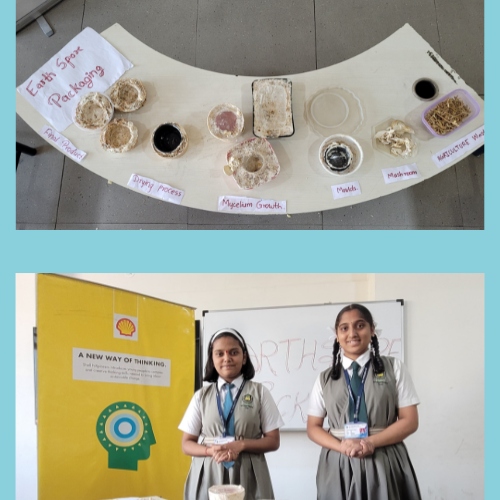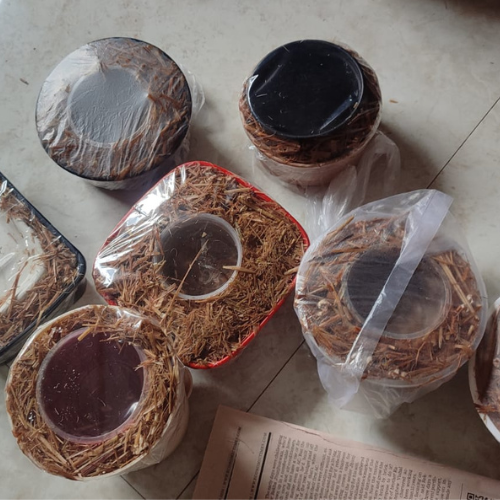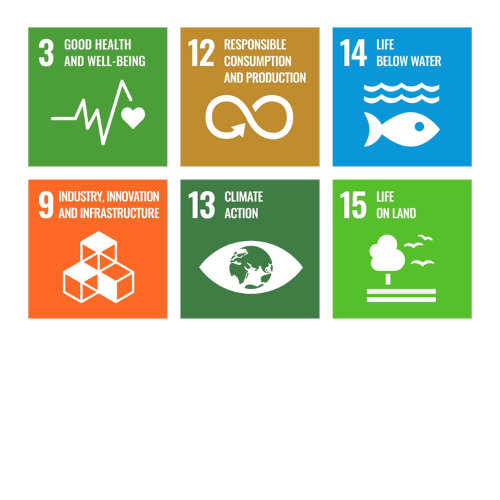What was the problem?
Team Greenova from India set out to tackle one of the world’s most visible and harmful environmental issues, plastic waste from single-use packaging. Over 400 million tonnes of plastic are produced globally each year, much of which ends up polluting oceans and land. In their local area, plastic waste was impacting both the environment and public health.
What did they do?
With help from their mentors, the team wanted to develop a safe, sustainable packaging alternative using nature-based materials. Their idea, Earth Spore Pack, is a fully compostable material made from mushroom roots (mycelium) and agricultural waste – materials that are natural, renewable and biodegradable. The goal was to replace plastic packaging with something that works with the environment, not against it.
RETHINK Packaging Systems
The team explored the long-term damage caused by plastic and Styrofoam and reimagined packaging as something that could support ecosystems, not harm them.
RESEARCH Natural Alternatives
They discovered that mycelium, the root structure of mushrooms, can act as a natural binder. When combined with corn husks and wood chips, it forms a strong, compostable material.
RECOMBINE Waste and Biology
They developed a three-step process:
1. Clean and inoculate agricultural waste with spores.
2. Grow in custom moulds over 4–7 days.
3. Bake to finish and strengthen the product.
RECYCLE Waste into Innovation
The final packaging biodegrades within 30–90 days and turns into compost, transforming waste into something valuable for the environment.


What was the solution?
Earth Spore Pack is lightweight, durable, antimicrobial, breathable and heat-resistant – making it ideal for packaging fresh produce, baked goods, electronics and even cosmetics. It is designed with food and consumer safety in mind, while avoiding the toxic chemicals often found in conventional packaging.What was the result?
Currently in its prototype phase, Earth Spore Pack has already generated strong interest within their school and local community. The students aim to carry out further testing to assess food safety and shelf-life, with plans to explore commercialisation and scale the product into new markets, including wet food packaging.
This project contributes to the following UN Sustainable Development Goals:
3. Good Health and Well-being
Eliminates toxic chemicals from food packaging, promoting safer consumption.
9. Industry, Innovation and Infrastructure
Encourages eco-friendly industrial practices in packaging.
12. Responsible Consumption and Production
Promotes sustainable packaging and a circular economy by using biodegradable materials.
13. Climate Action
Reduces plastic waste and carbon emissions from plastic production.
14. Life Below Water
Prevents marine pollution by replacing single-use plastics.
15. Life on Land
Enhances soil health by decomposing into nutrient-rich compost.

The NXplorers programme inspired us to see nature not just as a victim of pollution, but as part of the solution. Turning mushrooms into sustainable packaging felt like giving the earth its voice – and we listened. Thanks to NXplorers, we believe that real change begins when curiosity meets purpose.